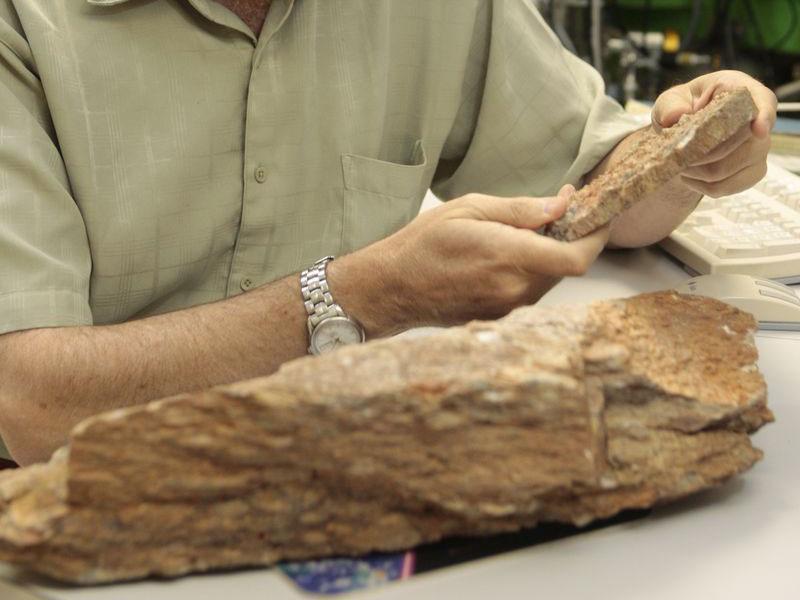Life on Earth appeared hundreds of millions of years earlier than previously thought, ancient crystals show
The discovery would mean that life came to our planet very soon after it was formed

Life may have come to earth 4.1 billion years ago, hundreds of millions of years earlier than we knew.
The discovery, made using graphite that was trapped in ancient crystals, could mean that life began "almost instantaneously" after the Earth was formed. The researchers behind it have described the discovery as “a potentially transformational scientific advance”.
Previously, life on Earth was understood to have begun when the inner solar system was hit by a massive bombardment from space, which also formed the moon's craters.
“If all life on Earth died during this bombardment, which some scientists have argued, then life must have restarted quickly,” said Patrick Boehnke, a co-author of the research, in a statement.
Researchers made the discovery by looking at specks of graphite that were trapped inside of zircon crystals, which were found in Jack Hills in Western Australia. That graphite appeared to have a biological origin, since it was enriched with the C12 carbon isotope that is associated with living things.
The discovery could throw out the previous understanding of the early Earth as desolate and dry. It was "much more like it is today than previously thought", the scientists said.
The scientists — who were led by the University of California at Los Angeles's Dr Mark Harrison — said that the graphite had been completely enclosed in the crystal, which was crack free and so could not have been contaminated.
They wrote: "This study extends the terrestrial carbon isotope record around 300 million years beyond the previously oldest-measured samples from south-west Greenland."
The same form of carbon could have been produced in other ways, such as a meteorite crash, the researchers said. But the sheer amount of it means that it is unlikely.
"A biogenic origin seems at least as plausible," the scientists added.
Dr Harrison said that the findings would have been "heretical" twenty years ago: "finding evidence of life 3.8 billion years ago was shocking," he said in a statement.
Join our commenting forum
Join thought-provoking conversations, follow other Independent readers and see their replies
Comments
Bookmark popover
Removed from bookmarks